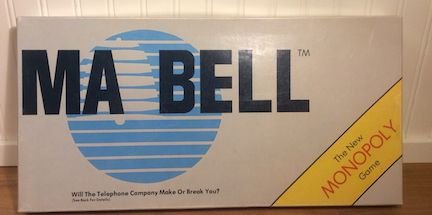The Human Drive for Inequality

You will find equality in basic fundamental principles and you will also find equality in death and poverty. Under inequality nobody is worse off but some are just better off than others.
In 1913 (the same ominous year in which the Federal Reserve Act was created, destroying the foundations of the free market), American Telephone & Telegraph cronied its way into a government-created telecommunication monopoly that lasted for 70 years. And during that time, telephone innovation stopped cold. So cold, in fact, that all phones looked pretty much identical for decades. Our phones were wired permanently to the wall. Oh, and they weren’t our phones.
Believe it or not, it was illegal to own your phone. Western Electric (an AT&T subsidiary) owned them all. It was the only company legally allowed to manufacture phones. Neat trick: the same phone that my great-grandfather didn’t own still worked on the stagnant, unchanged AT&T system when my parents didn’t own their phone five decades later.
With a guaranteed and excellent profit of 12% annually and a total monopoly, there was no motivation for AT&T to innovate, provide for (or even be aware of) the changing needs or the desires of the customers, nor to increase efficiency and productivity, lower costs, or provide good customer service. They could sit there, picking their nose and earn 12%. Prices were always high for telephone communication during most of the 20th century. Every long-distance call cost us money. The higher the revenues, the more AT&T’s 12% would add up. Why would AT&T fight to make things more efficient or cheaper? Doing so would only hurt its cash flow.
Deregulation occurred in the early 1980s, and AT&T’s monopoly was eliminated. When equality got sidelined, competition for each customer’s money blossomed, and new, better technologies began popping up in unexpected places. The result: Sprint and MCI created entirely new networks and fiber-optic digital telecommunication lines.
Source of shared Link

What i hate is that telephone companies still charge for (antiquated) caller ID.
If you have ever worked on a T1 or other trunk line, you know that all the phone call packets have the caller and receiver numbers in them.
So, in order for you not to get caller ID at your phone, the telephone company has to block it at the last step before getting to your home.
I refuse to pay someone to stop blocking something.
And, don't get me started on text messaging.
A lot if informative post. Lot of inequality sorounding in our society.